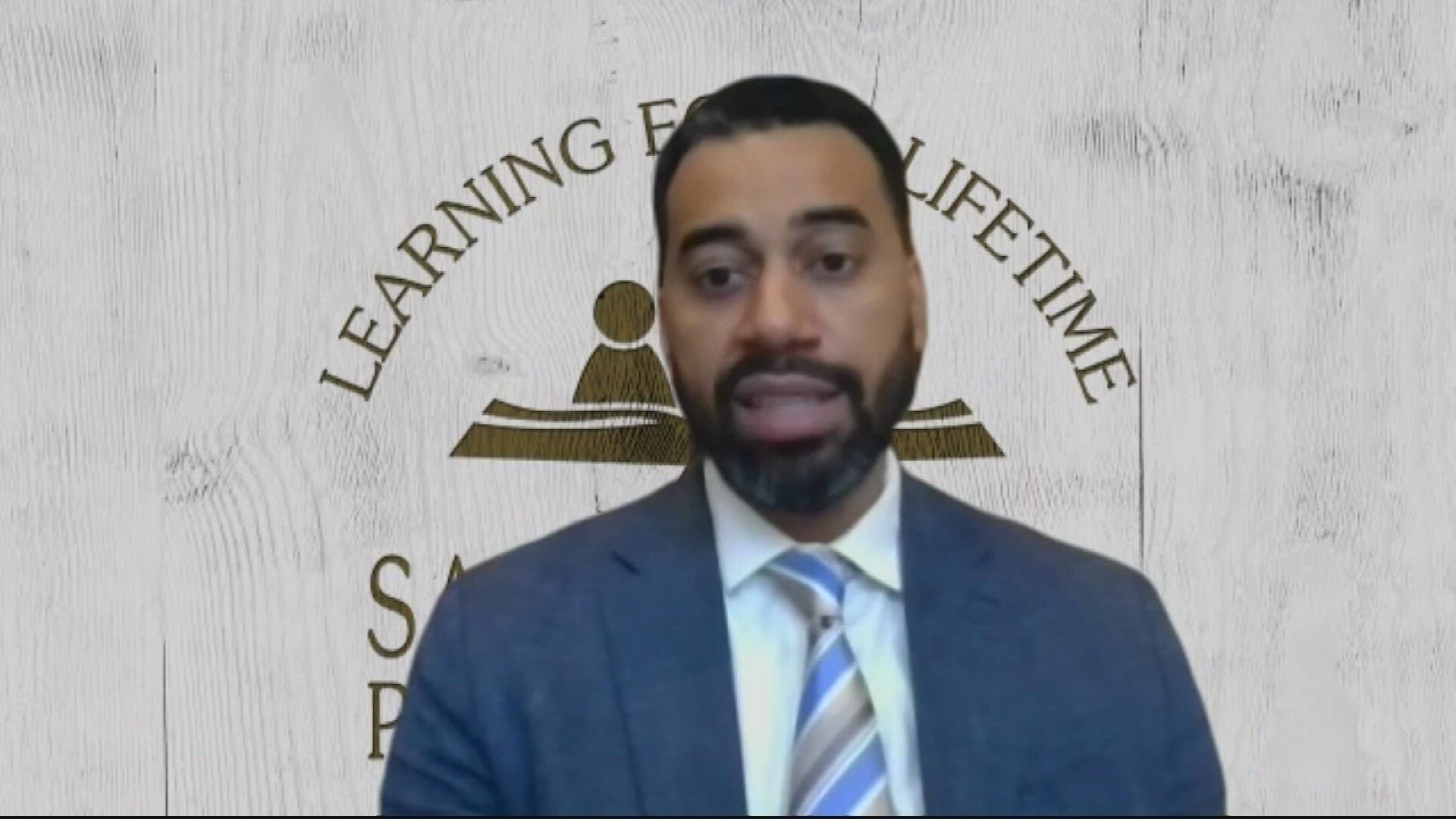SALEM, Ore. — A KGW story about students acting out and, in some cases, becoming violent in Salem-Keizer classrooms has been getting a strong reaction from people in the community and on social media.
The story was shared hundreds of times with more than 1,000 responses through email and KGW’s social media pages. It's an issue that KGW has reported on throughout the years with an uptick more recently in many districts.
In the story, current and former educators spoke candidly about their experiences in the classroom.
District leaders have said there has been more disruptive behavior from students this year.
A viewer named Shelley wrote into KGW asking about suspensions in the district, saying, "The vice superintendent said suspensions were down this school year due to several changes made in the district. What was not clear in the story was that schools are being told not to suspend students. Staff are not able to give students consequences for skipping school, being chronically tardy to classes or worse, swearing and threatening staff."
RELATED: 'There was nothing that we could do': Salem-Keizer educators speak candidly about classroom violence
Iton Udosenata, assistant superintendent for Salem-Keizer Public Schools said there are consequences for students who misbehave. He did not say anything about schools being told not to suspend students. Udosenata pointed to roughly 5,000 suspensions in the district this year, which is down from what the district typically sees.
He said that with 65 schools districtwide, it's possible there could be space for some misinterpretation.
“If we said publicly that we believe in restorative practices, some could have misinterpreted that as, ‘don't send kids out of class even if they're being disruptive’ or ‘we're not going to suspend kids at all’ or ‘we just have to deal with negative behaviors internally.’ I certainly hope that that's not the reason that that number [of suspensions] is down,” said Udosenata.
When it comes to discipline, Udosenata said the district is layering an educational component to school discipline by, in part, talking to students about why their behavior was wrong and giving tools to improve decision-making in the future.
One strategy Udosenata mentioned was something called a "behavior reset."
“This speaks more to disruptive behavior where we reteach students what the behavior expectations are,” said Udosenata.
He said strategies like that have been fairly effective and added that he has kids attending school in the district, and he doesn’t worry about their safety at school.
Another viewer, Anne, wrote an email, saying, “I have worked in the K-12 public schools since the '80s. Like many careers, teachers have increasingly taken on more: class size, technology, curriculum, students with special needs and discipline to name a few. At the same time budgets for social services have been slashed. At what point do we look at the big picture for gun violence, violence in schools, growing gangs as issues that need multiple means of support?"
Throughout the pandemic, KGW has talked to teachers from many districts who felt their plate was much too full. KGW has consistently heard about their need for more support and resources in the classroom.
On Monday, KGW spoke to Tyler Scialo-Lakeberg, president of the Salem-Keizer Education Association.
She said the union is working closely with the district to come up with solutions and that when it comes to behavioral issues, there seem to be two groups of students.
Scialo-Lakeberg said one group encompasses students who are addicted to their phones and lacked structure in the pandemic. When a teacher tells them to do something, they may react defiantly. She said those are the students teachers and the district are trying to get back on track.
She said the more extreme and violent behaviors, like biting, kicking, hitting or scratching, are not happening in all of the district's 65 schools, but in the classrooms where they are happening, she said the kids involved need more help. Scialo-Lakeberg said these types of more extreme behaviors are often associated with students with special needs, and she said there needs to be more resources beyond what individual teachers or even the district can provide. She said additional state and federal funding for programs specifically geared toward helping the kids with the highest needs would be helpful.
Other teachers in and outside of Salem-Keizer Public Schools said aggressive and violent behavior has been years in the making. KGW’s Classrooms in Crisis series explored the issue, focusing on classrooms across Oregon a few years ago. Those stories show the behavior is not new, but many educators agree the situation was made worse by the pandemic.
This school year, KGW has heard anecdotally from school psychologists, counselors and other educators that disruptive behaviors at many districts are up.
On Monday, KGW reached out to both Beaverton Public Schools and Portland Public Schools for numbers related to disruptive behaviors in the classroom. A spokesperson for Beaverton schools said they didn’t have a data set that matches the criteria but could only think of expulsions, which would entail more behavior than “acting out” in the classroom. A spokesperson for Portland schools said the district didn’t have the data immediately accessible and may require days or weeks to gather the data.

